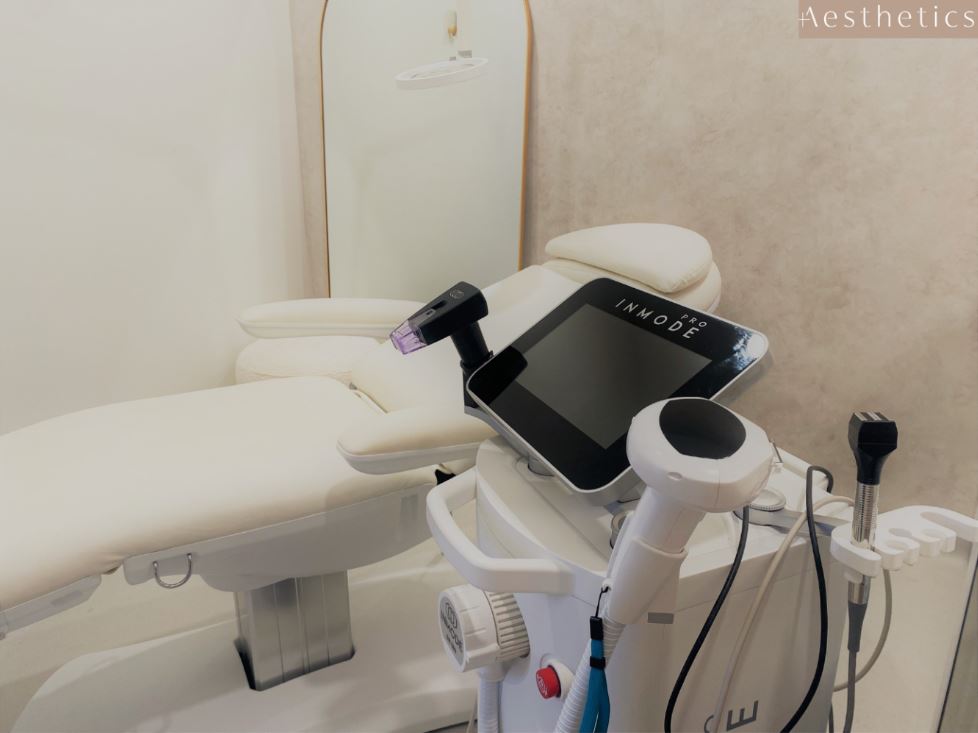Managing Your Pigmentation With IPL & Skincare

If you’re bothered by freckles, age spots, uneven skin tone, discolouration or melasma, you
aren’t alone. Pigmentation is a common skin concern, but can often be stubborn and difficult to
treat. If you’d like to learn how to reduce and manage your pigmentation through topical
skincare products and clinical skin treatments like IPL, you’ve come to the right place.
How Pigmentation Works
To best manage pigmentation, it’s imperative to understand the root cause. Skin pigmentation
involves a complex cellular cascade, starting with our melanocyte cells. Put simply, melanocytes
are triggered to create melanin (pigment) which is transferred along this cascade and dispersed
into the tissue in varying quantities and depths. Therefore; whether it be freckles and age spots
or more chronic conditions like melasma, preventing the stimulation of melanocyte cells is key.
What Causes Pigmentation?
Melanocyte cell activity is triggered by a number of factors. The primary cause of pigmentation
is sun exposure, as melanocyte cells are triggered significantly by ultraviolet light. The most
common misconception around sun exposure is that you need to burn or tan in order for
problems to occur. However, UV comprises multiple wavelengths of light, each impacting the
skin differently. UVB and UVC wavelengths are blocked completely by glass, but did you know
that UVA radiation can pass through? This particular wavelength is deeply-penetrating and not
only triggers melanocyte cells causing pigmentation, but destroys collagen and elastin fibres
causing sagging and wrinkles. Pigment may appear right away, or may linger below, unseen,
only to become visible later in life as the skin thins naturally with age. Therefore, daily
sunscreen application; even when indoors, is crucial for managing skin pigment. Another cause
of over-stimulation of pigment cells is hormones. This is why melasma often occurs during
pregnancy, or coinciding with contraceptive medications.
Preventing Pigment Transfer
Aside from preventing the initial stimulation of pigment cells, a secondary tactic is preventing the
transfer of melanin from the melanocyte cells into the skin. In skincare products, there are a
number of ingredients that can reduce this transfer. We call these pigment inhibitors, and they
include niacinamide, retinol, kojic acid, arbutin, and licorice root to name a few. These
ingredients are recommended for any pigmented-related skin concerns, especially when
preparing the skin for clinical pigmentation treatments like laser, IPL, radiofrequency or skin
needling.
Skin Treatments For Pigment
There are several highly effective clinical skin treatments for reducing pigmentation. Skin
needling and RF needling can break up and disperse some clusters of superficial pigment, in
addition to improving the skin’s texture and pore size. Our favourite pigmentation treatment at
Plus Aesthetics is our Lumecca IPL. Extremely safe and effective, Lumecca IPL’s Intensed
Pulsed Light energy is absorbed by melanin, which is destroyed and naturally removed by the
body. An added bonus is that the Lumecca IPL energy is also absorbed by small vessels and
broken capillaries, a common side effect of sun exposure. This means each Lumecca IPL
treatment can simultaneously reduce redness and veins as well as freckles, age spots, and
discolouration. Plus, new collagen formation is boosted, resulting in plumper, firmer, and more
youthful skin. This is why Lumecca IPL is renowned for its spectacular, multi-tasking results.
Reducing pigmentation is always best achieved through a tailored approach which combines
daily sunscreen, pigment-reducing skincare products, and in-clinic IPL sessions or other
clinicals treatments. This often requires time, persistence, and lots of patience, but we promise
that the results (and the confidence that comes with them) are worth it! Visit us to speak to our
skin experts about Lumecca, or how we can create an individualised treatment approach to suit
your unique needs.
